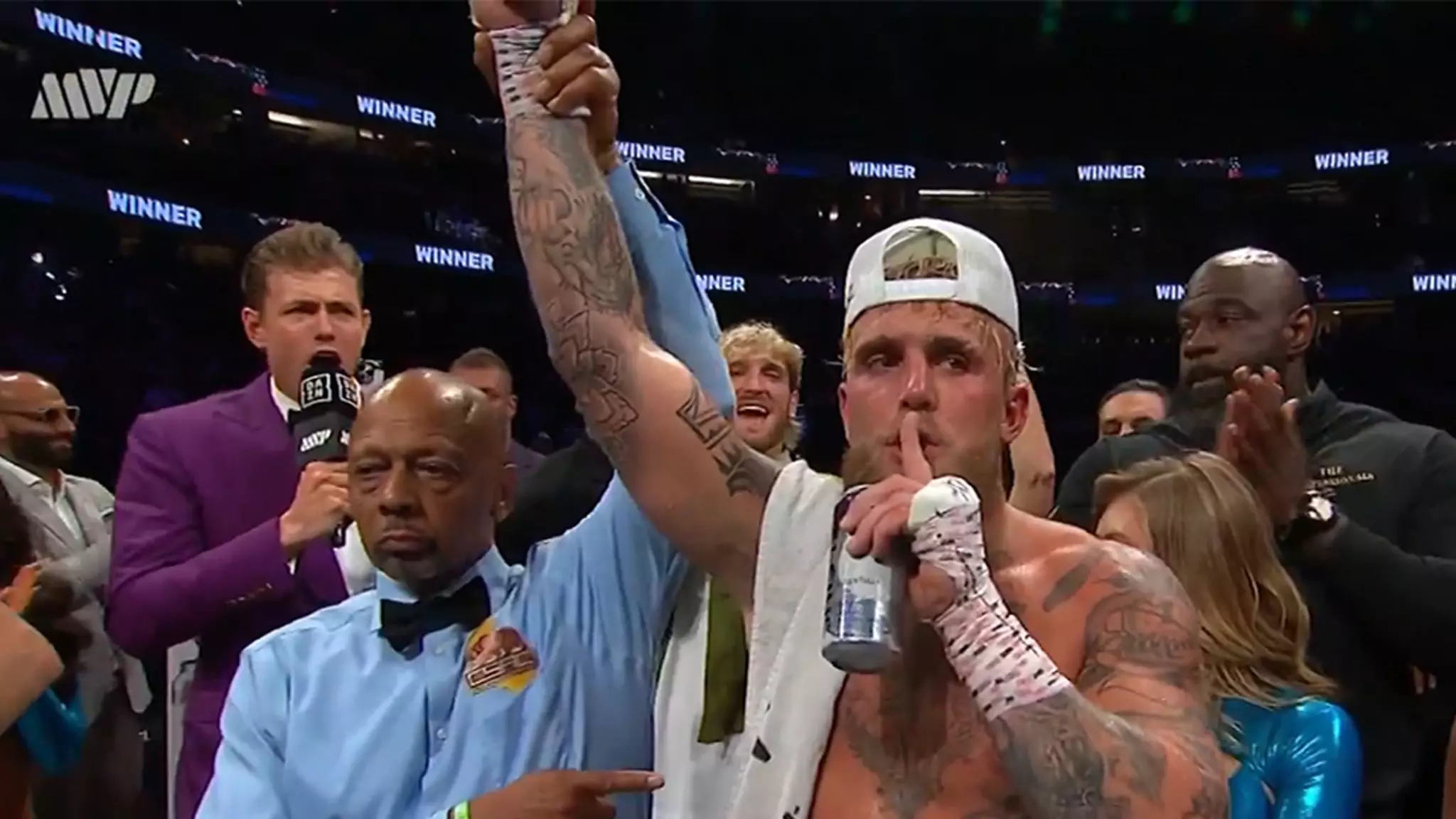In a sport steeped in tradition and celebrated champions, Jake Paul’s latest victory over Julio Cesar Chavez Jr. underscores a tectonic shift in boxing’s landscape. Paul, once dismissed as merely a social media personality dabbling in combat sports, has now firmly established himself as a formidable contender. His unanimous decision win at the Honda Center in Anaheim marked not just another notch on his belt but a continued affirmation of his growing legitimacy inside the squared circle. While traditionalists might scoff, Paul’s ability to consistently defeat seasoned professionals exposes a new era where charisma, strategic training, and relentless ambition converge.
Chavez Jr.: A Mismatch of Expectations and Reality
The night was supposed to be Chavez Jr.’s redemption story – a seasoned veteran and former WBC middleweight champion poised to reclaim some glory. Instead, the fight reflected a troubling lack of engagement from the 39-year-old. Despite steadfast support from a hometown crowd, Chavez Jr.’s lethargic performance rendered the event underwhelming. His hesitance to throw punches early, coupled with frequent complaints to the referee about alleged fouls, painted a picture of frustration and diminished competitiveness. This behavior contrasted sharply with the aura of a champion’s resolve. By the later rounds, some signs of life emerged as Chavez Jr. landed a handful of effective shots, yet it was too little, too late. His inability to maintain consistent pressure revealed not only physical decline but perhaps a waning hunger to compete at the highest level.
Paul’s Tactical Prowess and Mental Fortitude
Jake Paul’s fight strategy demonstrated a marked evolution beyond mere showmanship. He actively sought to engage Chavez Jr. in the early rounds, mixing solid combinations with strategic pressure. When the momentum shifted in the sixth round, Paul displayed resilience by tying up and weathering Chavez’s late surge, an often-overlooked aspect of ring IQ that distinguishes determined fighters. The fight statistics further reinforce Paul’s superiority: landing over 190 punches compared to Chavez Jr.’s 60-plus, with a steady drumbeat of offense that ultimately wore down the veteran. Paul’s trash talk post-fight may come off as abrasive, yet it reflects a dogged self-belief that fuels his ascent in a brutally competitive arena.
The Broader Implications for Boxing’s Future
Beyond the immediate aftermath, Paul’s trajectory raises fascinating questions about boxing’s evolution. His name-dropping of elite fighters such as Anthony Joshua and Gervonta Davis signals an appetite to transcend novelty status and compete against the best. The skepticism from purists remains, but Paul’s commitment to high-profile matchups and charitable acts, like supporting Ben Askren’s medical fundraiser, illustrate a nuanced personality balancing ego with empathy. Whether critics see him as a disruptor or a legitimate star, Paul undeniably brings heightened visibility to boxing. This fusion of entertainment, athleticism, and personal branding may well be the formula for the sport’s resurgence amid a crowded combat sports market.

